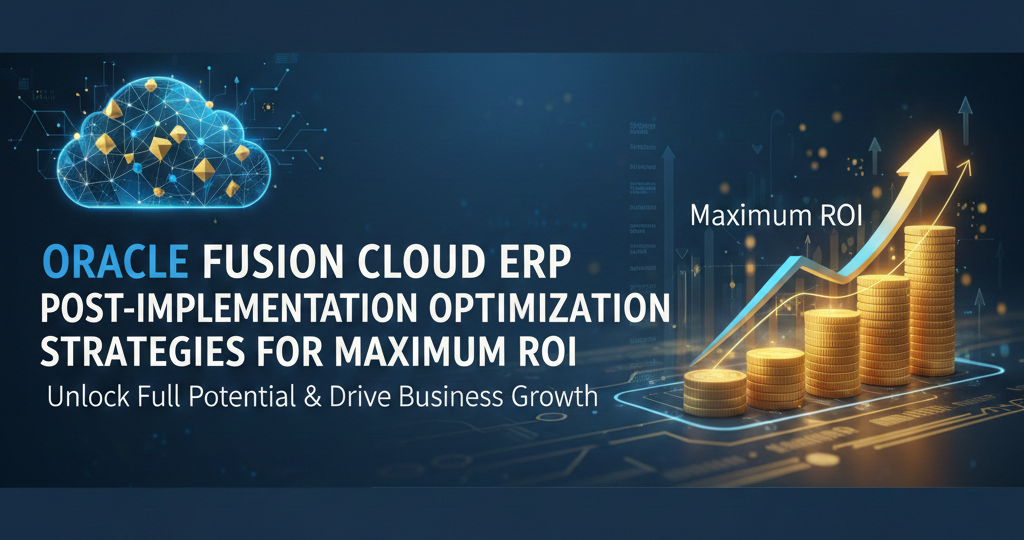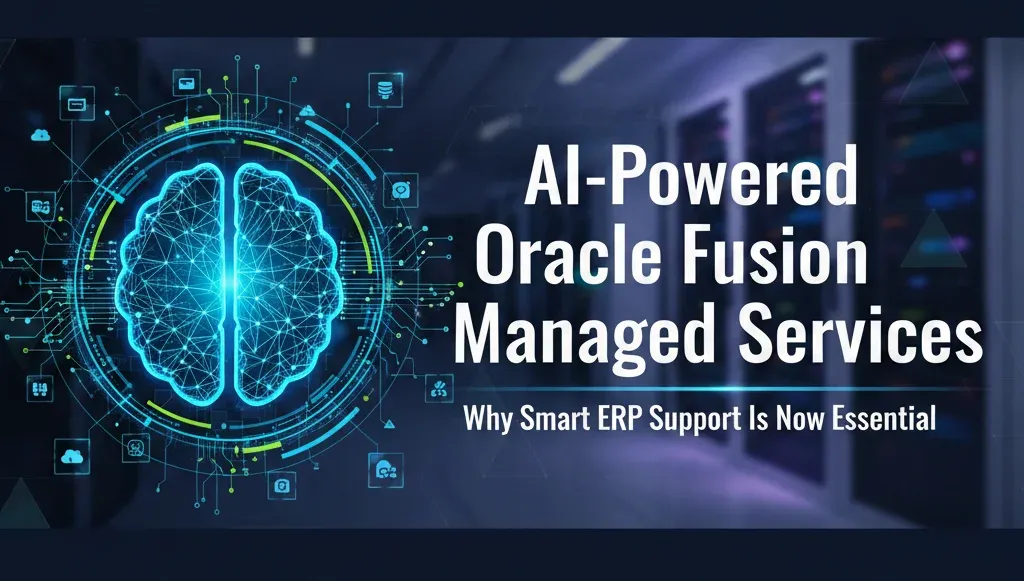Absolutely! You’ve made the pivotal choice to elevate your business operations by embracing NetSuite. Nonetheless, integrating a new Enterprise Resource Planning (ERP) system into your company infrastructure is a substantial endeavor, regardless of your business’s scale.
Fortunately, the EPIQ team has meticulously crafted an all-encompassing NetSuite ERP Implementation Guide, encompassing pivotal elements crucial for triumphant project execution.
Excitingly, if you’ve identified the key indicators signaling the need to upgrade your archaic systems (such as relying on spreadsheet-centric software like Quickbooks or an early-stage legacy solution), you’ve already embarked on the initial significant stride. Our assistance awaits to support you through the remainder of the journey, aiming to address your pressing inquiries and needs.

Table of Contents
Implementing(Implementation) NetSuite ERP software
NetSuite ERP, a sophisticated and intricate software, adeptly tailors itself to diverse organizational needs. Its suite comprises customizations, modules, integrations, and configurations, all moldable to suit your specific objectives.
Before delving into a NetSuite implementation strategy, a crucial step involves navigating your existing processes. Understanding your business’s aims and objectives forms the bedrock for a successful transition.
Once aligned, the implementation process kicks off. The optimal approach involves an immersive study of NetSuite and its manifold components. This empowers you to discern the finest practices tailored to your unique requirements, paving the way for an effective implementation blueprint.
Moreover, establishing an internal implementation team alongside comprehensive training for potential NetSuite users becomes imperative in ensuring a seamless transition.
Important factors that impact your NetSuite Implementation
A clearly defined scope of what you want as an implementation is critically important to your process.You must do your due diligence here and set a realistic timeline based on what you want NetSuite to do, how many added features you want, the depth of your data migration (do you have years and years of historical data?) and how many people on your team will be assigned to work with your implementation partner.
The companies must opt for the right team, which can assist and monitor essential steps of your implementation project.
Choose the right players from your internal team to oversee and assist with all necessary steps of your implementation project.
Setting goals is the priority for the companies at the initial level of Netsuite implementation. This will up your chances of success and expedite your implementation procedure. A discussion and agreement on short-term objectives for NetSuite should occur before you begin launching anything.
Stepwise Implementation guide
When it comes to implementing NetSuite, it’s important to bear in mind that each implementation is unique. With that said, although the following guide isn’t absolute, it contains essential aspects that individuals initiating a NetSuite implementation should be aware of.
Discovery Phase
The discovery phase marks the inaugural stage of implementation, encompassing extensive research and developmental endeavors concerning the project. During this phase, objectives are set, discrepancies are pinpointed, and the probable necessities for data migration, business workflows, and integration frameworks are deliberated upon.
Planning
Now that the research and development is out of the way, it’s time to take those discussions and put them into motion. Internal teams, partners, and external stakeholders will establish a timeline, assign tasks and responsibilities, as well as decide who will be the key members of the implementation process.
Execution
Say goodbye to the nitty-gritty aspect of a project, it’s now time to get your hands dirty and jump into the NetSuite software.
Key features include: data migration, configurations, setting up accounts, integrating modules, building workflows and integrations, as well as assigning roles and permissions.
Training
Training constitutes a pivotal phase within the NetSuite implementation, bearing immense significance that should not be overlooked.
Post the departure of external resources, inadequate internal team training on NetSuite may result in an inability to troubleshoot emerging issues. Furthermore, lacking expertise might hinder the effective guidance of other users in optimizing NetSuite functionality. The success of implementations heavily relies on adequately training designated team members to sustain operations post-go-live.
Obtaining comprehensive training involves engaging directly with NetSuite or seeking guidance from your NetSuite implementation partner. Multiple resources such as workshops, online tutorials, and guides cater to the diverse learning needs of NetSuite users.
The launch has begun
Go-live marks the crucial phase of deployment. It’s akin to activating the system after meticulous completion of preceding steps, extensive software testing, and receiving approval from your NetSuite partner.
Upon this stage, you transition into active usage of NetSuite, initiating operational adoption and unlocking the potential for positive transformation across your workflows.
Post-Go-Live
After the go-live stage, while implementations typically proceed without major hitches, the potential for unforeseen technical glitches in technology and software always exists.
Throughout the post-go-live phase, maintaining regular communication with your NetSuite partner for several months is advisable to swiftly address any unexpected issues requiring external assistance. Moreover, it’s beneficial to maintain a continued partnership with your NetSuite provider for long-term support, ensuring access to ongoing assistance, and remaining informed about evolving processes, updates, and upgrades essential for optimizing your NetSuite setup as your business expands.
NetSuite Implementation Partners
Selecting the right NetSuite implementation partner stands as a pivotal phase in your implementation journey, yet it’s where many companies falter.
An inadequate choice or lack of expert guidance during software implementation often triggers challenges directly impacting business operations. Conversely, a proficient implementation partner brings forth invaluable insights from prior experiences, offering guidance to preempt foreseeable hurdles and navigate major challenges encountered throughout the process.
While some businesses entities opt for self-implementation to cut costs, the long-term repercussions often result in higher expenses. Managing gaps in operations, data migration, unforeseen issues, training, cost, and time demands substantial expertise beyond mere webinars and demonstrations. It necessitates significant manpower and invaluable specialized knowledge.
How do NetSuite Implementation Partners help you?
A NetSuite Implementation Partner is a specialized entity or organization that collaborates with businesses to facilitate the successful integration and deployment of the NetSuite Enterprise Resource Planning (ERP) software. These partners possess extensive expertise and experience in configuring, customizing, and optimizing NetSuite solutions according to a company’s unique requirements. They guide businesses through the entire implementation process, from initial planning and strategizing to post-implementation support.
Their roles encompass various crucial tasks, including analyzing business needs, designing customized solutions within NetSuite, overseeing data migration, conducting user training, and providing ongoing support and maintenance. They act as advisors, leveraging their in-depth knowledge of NetSuite functionalities to streamline processes, troubleshoot issues, and ensure a seamless transition to the new system. Ultimately, NetSuite Implementation Partners play a pivotal role in maximizing the effectiveness of NetSuite within an organization, aligning the software with business objectives, and enabling long-term success through measured solutions and expert guidance.
How can you tackle implementing NetSuite effectively?
There isn’t a single playbook for bringing in NetSuite, but there are several key elements that make a project successful. NetSuite acts as a central hub, weaving together vital operations like finance, sales, HR, project handling, inventory, warehouses, supply chains, eCommerce, and more throughout your organization.
- Planning Readiness:
The NetSuite strategy for Planning Readiness involves a comprehensive approach aimed at orchestrating a seamless transition from legacy systems to full integration within the NetSuite ecosystem. This strategy entails the meticulous creation of a detailed roadmap delineating the step-by-step process of shutting down legacy systems and initiating transactions within the new NetSuite platform. It encompasses various critical tasks such as meticulously planning and executing transaction migrations, including pending transactions, setting up opening balances and inventory, and formulating a robust validation strategy to ensure the accuracy and integrity of the final data import.
Ensuring readiness involves a multifaceted assessment of available resources. Evaluating the availability and preparedness of key stakeholders, departmental leaders, and consultant resources crucial for the implementation process. Building contingencies and buffers to mitigate potential delays is imperative, necessitating a thorough examination of the logistics pertaining to external support and standby IT staff.
- System Readiness:
The NetSuite strategy for Planning Readiness involves a comprehensive approach aimed at orchestrating a seamless transition from legacy systems to full integration within the NetSuite ecosystem. This strategy entails the meticulous creation of a detailed roadmap delineating the step-by-step process of shutting down legacy systems and initiating transactions within the new NetSuite platform. It encompasses various critical tasks such as meticulously planning and executing transaction migrations, including pending transactions, setting up opening balances and inventory, and formulating a robust validation strategy to ensure the accuracy and integrity of the final data import.
Ensuring readiness involves a multifaceted assessment of available resources. This encompasses evaluating the availability and preparedness of key stakeholders, departmental leaders, and consultant resources crucial for the implementation process. Building contingencies and buffers to mitigate potential delays is imperative, necessitating a thorough examination of the logistics pertaining to external support and standby IT staff. This holistic approach aims to synchronize stakeholders, processes, and resources, ensuring a well-prepared and streamlined transition to NetSuite, while maintaining operational continuity and data integrity throughout the implementation process.
- People Readiness:
The NetSuite strategy concerning People Readiness focuses on preparing and engaging the organizational workforce for a successful transition and adoption of NetSuite. This strategy entails a meticulous assessment of the organizational structure, workforce capabilities, and user needs. It involves comprehensive planning and execution of training programs tailored to diverse user groups within the organization, aiming to impart in-depth knowledge and proficiency in utilizing NetSuite functionalities effectively.
It emphasizes change management strategies, encompassing stakeholder engagement, communication plans, and ongoing support mechanisms to facilitate smooth adaptation to the new system. Furthermore, the strategy involves identifying and aligning key personnel as champions or advocates of the NetSuite implementation, fostering a culture of user empowerment and continuous learning. The overarching objective is to ensure the readiness and preparedness of the organizational workforce, enabling them to adeptly navigate NetSuite, embrace system changes, and effectively leverage its capabilities to drive operational efficiency and business growth.
- Business Readiness:
The NetSuite strategy concerning Business Readiness centers on a comprehensive approach aimed at preparing the organization’s operations, processes, and infrastructure for the integration and adoption of NetSuite. This strategy encompasses a thorough assessment of the existing business processes, workflows, and operational intricacies to align them with NetSuite functionalities.
It involves meticulous planning and execution to address potential gaps and challenges in data migration, system integrations, and process modifications required for a successful transition.
Additionally, the strategy emphasizes the establishment of robust contingency plans, risk mitigation strategies, and change management protocols to anticipate and manage potential disruptions that may arise during the implementation phase.
Furthermore, it involves stakeholder engagement, ensuring alignment with business objectives, and defining clear metrics and performance indicators to measure the success and effectiveness of NetSuite integration within the organization.
The overarching goal is to ensure that the organization’s business operations, workflows, and processes are optimally configured to leverage the capabilities of NetSuite, fostering operational efficiency, and driving business growth.
Risk Contingency and Mitigation Plan Readiness in NetSuite Implementation.
- Risk Management at Go-Live
This plan involves identifying, analyzing, and preparing for potential risks specifically associated with the implementation’s project go-live phase. It aims to anticipate and mitigate any factors that could hinder or disrupt the smooth launch of the NetSuite system.
- Monitoring and managing business risks before go-live
Focused on the business-oriented aspects of the go-live process, this strategy addresses risks that might impact business operations during the transition to NetSuite. It aims to minimize disruptions or complications that could affect day-to-day business activities.
- In case of a last-minute cancellation
This aspect involves formulating contingency plans in the event of an unforeseen last-minute cancellation of the implementation project. It outlines procedures to manage such scenarios and minimize the impact on resources and operations.
- Revisions post-launch
This plan encompasses strategies and protocols designed to revert to previous systems or configurations after the implementation, should critical issues or failures arise following the go-live phase. It ensures a structured approach to handle post-implementation setbacks and restore functionality if needed.
Can NetSuite implementations be affected by Data Migration?
Data Migration refers to the process of transferring or moving data from various sources or legacy systems into the NetSuite platform during an implementation. It involves extracting, transforming, and loading (ETL) data from existing databases, files, or applications into the structured format required by NetSuite.
The effectiveness of Data Migration significantly impacts NetSuite Implementations as it determines the accuracy, completeness, and integrity of the data within the new system. Flawless migration ensures that historical and current data from disparate sources are correctly mapped and transformed, enabling smooth operations within NetSuite. Conversely, inadequate or faulty data migration can result in data inconsistencies, errors, and incomplete information, affecting business processes, reporting accuracy, and decision-making within the NetSuite environment. Thus, a meticulous data migration strategy is crucial for a successful NetSuite implementation, ensuring data quality, compliance, and usability within the new system.
How do on-premise ERPs and cloud-based ERPs differ?
Data Migration denotes the intricate process of transferring data from various sources or legacy systems into the NetSuite platform during an implementation. It encompasses extraction, transformation, and loading (ETL) of data, ensuring it conforms to NetSuite’s structure.
This process involves mapping data fields, converting formats, and ensuring data integrity throughout the transition. Data Migration profoundly influences NetSuite Implementations by directly impacting data accuracy, completeness, and quality within the new system. An effective migration ensures a successful integration, enabling seamless data access, utilization, and reporting functionalities within NetSuite.
Conversely, inadequate or faulty data migration may result in inconsistencies, errors, or incomplete data sets, affecting operational efficiency, reporting accuracy, and decision-making processes within the NetSuite environment. A meticulous data migration strategy is pivotal for a successful NetSuite implementation, guaranteeing data reliability, compliance, and usability within the new system.
EPIQ Softech NetSuite Certified Partner
EPIQ Softech stands as a distinguished NetSuite Certified Partner offering unparalleled expertise and proficiency in implementing NetSuite solutions. As a trusted partner, EPIQ Softech exhibits a remarkable track record in delivering superior NetSuite implementation services, catering to diverse business needs across industries.
Their adept team comprises seasoned NetSuite professionals equipped with extensive technical know-how and an in-depth understanding of NetSuite’s intricate functionalities. EPIQ Softech’s hallmark lies in its strategic approach, meticulously tailored to each client’s unique requirements. Their adeptness extends from meticulous planning and proficient execution to ensuring a seamless transition to the NetSuite ecosystem.
EPIQ Softech’s commitment to excellence is reflected in their meticulous attention to detail and comprehensive support throughout the implementation journey. Their dedication to client success resonates in their ability to optimize NetSuite’s capabilities, empowering businesses to leverage the platform to its fullest potential.
NetSuite Implementation Guide Summary
The NetSuite ERP Implementation Guide is a comprehensive guide for businesses looking to integrate NetSuite into their infrastructure. It covers key elements such as the implementation process, risk contingency, and mitigation plan readiness.
The guide begins with identifying key indicators signaling the need to upgrade existing systems, such as spreadsheet-centric software or early-stage legacy solutions. Understanding your business's aims and objectives is crucial for a successful transition. The optimal approach involves an immersive study of NetSuite and its components, enabling you to discern the best practices tailored to your unique requirements.
A clearly defined scope of what you want as an implementation is critical, and companies must opt for the right team to assist and monitor essential steps of the implementation project. Setting goals at the initial level of NetSuite implementation will increase the chances of success and expedite the procedure.
The Stepwise Implementation Guide includes discovery, planning, execution, training, and post-go-live. Discovery involves extensive research and developmental endeavors, while planning involves setting objectives, pinpointing discrepancies, and determining necessary data migration, business workflows, and integration frameworks. Training is crucial for troubleshooting emerging issues and ensuring the effectiveness of NetSuite functionality.
Go-live marks the crucial phase of deployment, where businesses transition into active usage of NetSuite, initiating operational adoption and unlocking potential for positive transformation across their workflows. Post-go-live, maintaining regular communication with NetSuite partners and maintaining a continued partnership with the provider for long-term support is beneficial. NetSuite Implementation Partners are specialized entities or organizations that collaborate with businesses to facilitate the successful integration and deployment of NetSuite Enterprise Resource Planning (ERP) software. They possess extensive expertise and experience in configuring, customizing, and optimizing NetSuite solutions according to a company's unique requirements. Their roles include analyzing business needs, designing customized solutions, overseeing data migration, conducting user training, and providing ongoing support and maintenance.







